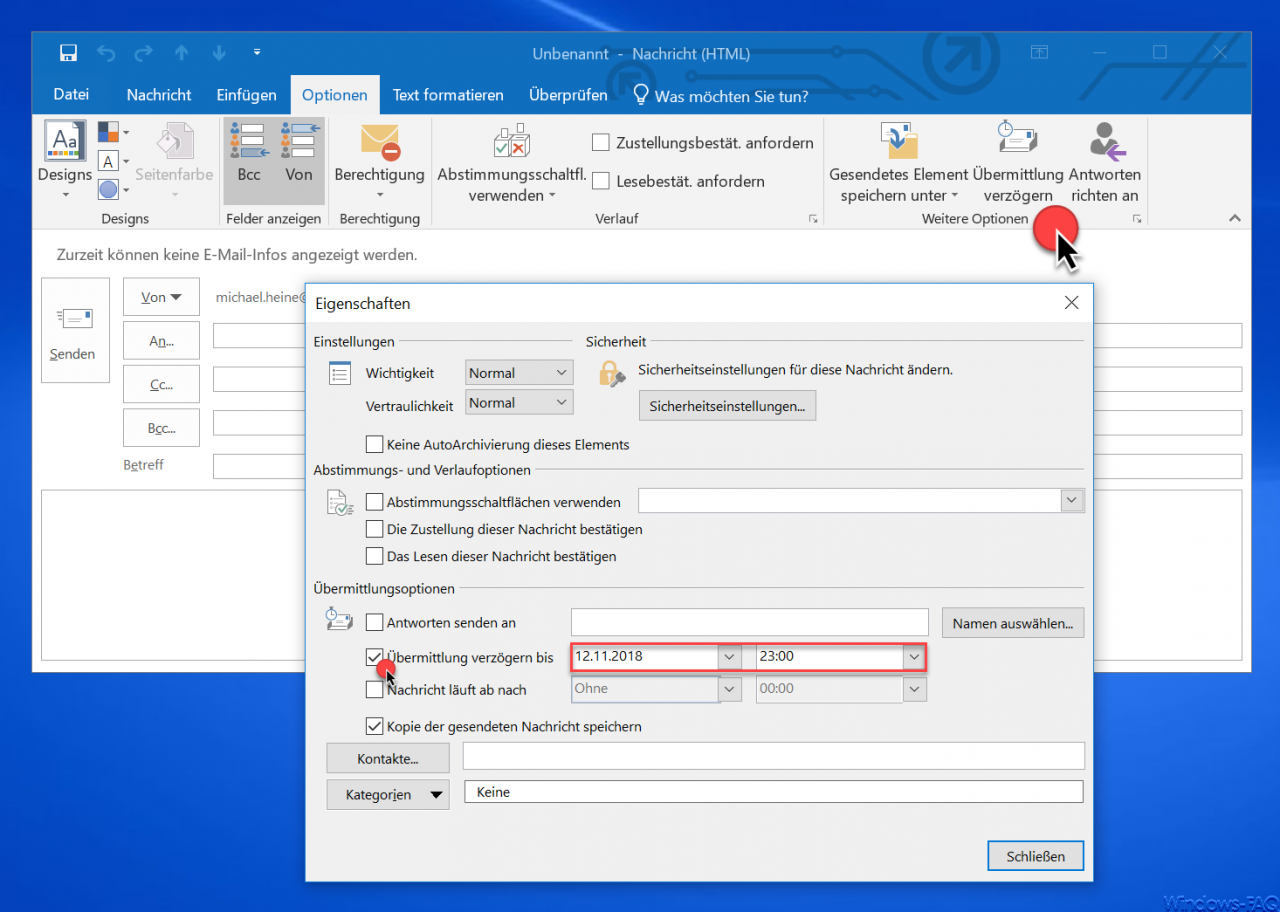

When doing so, your emails and calendars will show the correct time - until they need to be changed when you return home. When this occurs, you’ll need to adjust the time in your Microsoft Outlook calendar. Once the pandemic finally ends, people are going to be traveling more both nationally and internationally. You can double-click on the messages at any time to send them immediately or at another time. Unsent messages reside in the Outbox in Microsoft Outlook until they are sent. On the Properties menu, next to Do Not Deliver Before selection, choose the day and time you wish to send the message, then click Close. Before clicking the Send button, choose Options > More on the message menu bar. To use the tool, compose a message in Microsoft Outlook as you always do. The delayed email tool benefits anyone who (admits) to making mistakes on rushed messages and those who need to send a message at a different time or day. Have you ever sent an email only to find out later it contained a typo or incorrect information? Have you ever sent a message to the wrong person? With Microsoft Outlook’s delayed email deliveries tool, you can put a little bit of breathing room between writing and email and sending it. Once you spend the time to set-up your rule, you’ll begin to save a huge amount of time each day. By doing so, you can better organize, follow up, or stay ahead of your messages. With rules, you can apply rules to incoming and outgoing emails. Rules are another great feature in Microsoft Outlook. Looking for more? You can also use Quick Steps, which lets you pre-format and pre-address emails to multiple people. Ctrl + Shift + M: To create a new email.With Microsoft Outlook, you can take advantage of the following shortcuts: One of the ways to do this is to use shortcuts, which are available across Microsoft 365. One of your daily goals should be to type less and still do the same amount of work. To turn Favorites on/off, click View > Folder Pane > Favorites. By making the Urgent folder a favorite, it now resides at the top of the Folder Pane. Within this folder are emails that require an immediate response. In the following example, a new folder called Urgent has been created. To view Favorites, make sure you’re in the Mail view in Microsoft Outlook. Rather than assigning favorites to traditional folders like Sent Items and Deleted Items, you should keep this distinction only for custom folders. These folders aren’t changed in any way other than where they are located. You can also add new ones at a later date.Īssigning favorites moves a mail folder to the top of the Folder Pane. For example, if you only need three categories, delete the rest. Less is more in this case, and it’s recommended that you only use the categories you need. Otherwise, select the category you wish to use.


Click All Categories to adjust the names of current categories or to add new ones. To remove a flag, right-click on the message, then select Follow Up > Mark Complete.Ĭategories allow you to color-code emails mostly for search purposes and are located by right-clicking on a message, then choosing Categories. To view every current flag in Microsoft Outlook, select View >To-Do Bar >Tasks.

If necessary, you can create a custom alert for each flag by right-clicking on the message and choosing Follow-Up > Add Reminder. When adding a flag, the message preview turns yellow, and in the header, you’ll see a follow-up notification. You can choose a flag representing Today, Tomorrow, This Week, Next Week, No Date, and Custom. However, they are both slightly different than one another.įlags are time-based reminders that you can add by right-clicking somewhere on a message and then choosing Follow-Up. In general terms, both allow you to sort messages for later use. Two of the easiest ways to better organize your most important emails are by using flags and categories. Our favorites Microsoft Outlook tips follow. Microsoft Outlook offers several tools that make email much better and efficient to use. You either send new messages or read/respond to received mail. Email itself hasn’t changed much in recent years.


 0 kommentar(er)
0 kommentar(er)
